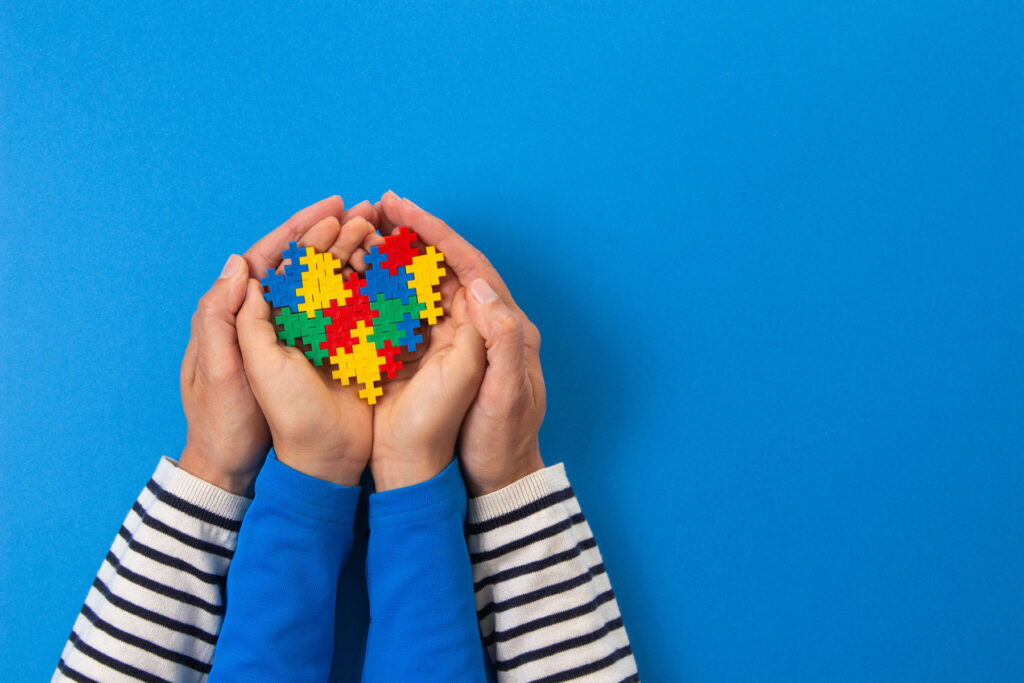A Gem of Joy’s autism therapy services in Maryland are designed with empathy, expertise, and a deep commitment to fostering growth and development. We strive to create a welcoming and supportive environment where clients feel comfortable and valued.
Our services enhance each learner’s strengths and are tailored to their needs, empowering them to reach their full potential. Call us today at 888.501.6641 to collaborate with our compassionate team and discover the joy of progress and growth.
Debunking 10 Harmful Stereotypes of Autism
Understanding and addressing autism stereotypes is crucial in fostering a more inclusive and supportive society for people with autism. These stereotypes often lead to misconceptions and biases that can negatively impact their lives. It’s important to debunk these myths to promote greater awareness and acceptance.
1. People with Autism Lack Empathy
Many believe that people with autism are incapable of feeling empathy, but this is a myth. People with autism can and do experience deep empathy, though they may express it differently.
2. All People with Autism Have a Savant Ability
While some people with autism have exceptional skills in specific areas, this is not true for everyone.
3. Poor Parenting Causes Autism
This outdated belief has been debunked by extensive research showing that autism is a neurological condition.
4. People with Autism Are Antisocial
People with autism often seek social interaction but might face challenges with conventional social norms.
5. Autism Can Be Cured
Autism is a lifelong condition. The focus should be on support and acceptance rather than a cure.
6. People with Autism Do Not Want Friends
Many people with autism seek meaningful friendships but may need support to navigate social settings.
7. Autism Only Affects Boys
Autism affects individuals across all genders, although it may be diagnosed differently.
8. People with Autism Have an Intellectual Disability
Autism affects individuals differently, and many people with autism have average or above-average intelligence.
9. Autistic Behaviors Are Misunderstood as Bad Behavior
Behaviors often associated with autism are typically coping mechanisms or ways to communicate.
10. Adults Cannot Be Diagnosed with Autism
Many adults are diagnosed later in life, and recognizing autism at any age can lead to better support and understanding.
By addressing and correcting these autism stereotypes, we can create a more understanding and empathetic world for everyone.
Why Is It Important to Address Autistic Stereotypes?
Addressing autism stereotypes is vital in building a compassionate and inclusive society that truly understands and supports individuals with autism. When we actively challenge these misconceptions, we create a world where people with autism can thrive without facing undue prejudice or misunderstanding.
For instance, debunking these myths can:
- Improve acceptance and reduce the stigma around autism
- Encourage more accurate representation and understanding in media and public discourse
- Facilitate better support systems in educational and professional environments
- Enhance social interactions by promoting empathy and proper communication strategies
- Empower individuals with autism by validating their experiences and challenges
- By dismantling these harmful stereotypes, we can foster an environment where everyone is respected and given the opportunity to achieve their full potential.
Call A Gem of Joy and Join Us in Fostering a More Inclusive Society Through Our ABA Services
At A Gem of Joy, we believe in the power of inclusivity and understanding. As a leading autism therapy service provider in Maryland, we strive to promote acceptance and debunk autism stereotypes through our compassionate and evidence-based services.
Our team is dedicated to empowering learners and families to reach their full potential and lead fulfilling lives. Contact us online or call us at 888.501.6641 today to join us in creating a world where everyone is valued for who they are. Together, we can make a positive difference!

